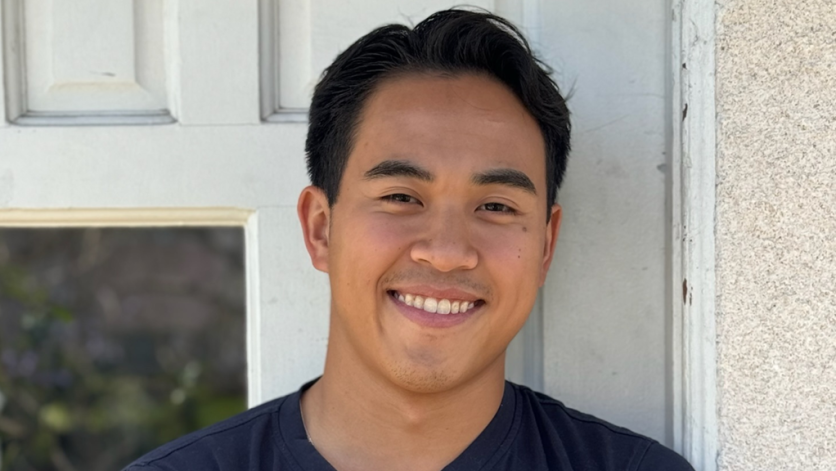
Salus Health began because Trung Tran recognized a problem that required attention. The co-founder and executive responsible for operations and product development frequently observed patients experiencing severe heart symptoms, such as racing pulse, tightness in the chest, or sudden blood pressure spikes. Healthcare providers often offered vague reassurances, leaving patients confused and unsupported.
Trung first encountered and recognized broader gaps in healthcare delivery when he joined an IoT startup that worked with a health tech startup to develop remote patient monitoring systems. Hospitals managed overwhelming caseloads during the COVID-19 pandemic, and these tools helped medical teams treat patients more effectively. Observing firsthand how thoughtfully applied technology could bring clarity and structure to overloaded clinical environments inspired him to explore similar solutions for broader healthcare challenges.
After completing the World Bachelor in Business program—a global academic journey across USC, HKUST, and Bocconi University—Trung returned to the United States with a clear mission: to create a healthcare solution that offers personalized, evidence-based support for patients whose symptoms are often misunderstood or dismissed. Through Salus Health, Trung is committed to building a system that delivers clarity, compassion, and dependable care.
"Millions of people hear that everything looks normal when their lives feel completely disrupted," Trung Tran explains. "That experience isolates patients and causes deep uncertainty. I wanted to build a solution that delivers answers and support."
Developing a Personalized Digital Health Model
Trung Tran co-founded Salus Health in June 2022. Soon after graduating, he raised $435,000 from supporters in the healthcare and technology sectors. The company's leading service, the Calm Heart Program, delivers remote care tailored for people who experience symptoms connected to cardiac anxiety. These symptoms include palpitations, chest pressure, and blood pressure spikes, often related to stress or panic.
Salus Health begins by deeply understanding each patient through a multi-week assessment process. This comprehensive phase includes an at-home biomarker test, detailed daily tracking and evaluation of lifestyle behaviors—such as nutrition, sleep, movement, and stress—as well as psychological and emotional assessments. Additionally, the Salus Health team reviews each patient's medical history and continuously monitors key health metrics via wearable devices.
After thoroughly synthesizing these insights, the team develops a personalized health plan tailored to each patient's unique physiological, psychological, and emotional needs. This customized roadmap integrates nutritional guidance, targeted supplementation, breathwork techniques, stress-management practices, tailored movement strategies, and access to live wellness classes and expert-led group sessions. The result is practical, timely, and individualized support that empowers patients to achieve sustainable health outcomes.
Trung Tran leads the engineering team and oversees Salus Health's integration of artificial intelligence into patient care. The platform leverages AI-driven analytics to continuously analyze biomarker results, wearable device metrics, lifestyle data, and patient-reported feedback collected during the assessment phase. These insights enable personalized adjustments to messaging, care plans, and the overall experience. This model ensures that each patient receives continuous support aligned with their needs.
Salus Health launched the program in early 2024 and has since supported over 300 patients. Many have reported improved control over their symptoms, fewer emergency room visits, and a stronger sense of confidence in their health outcomes.
"The team created every part of the program to be responsive, personal, and grounded in real data," Trung Tran notes. "Patients deserve care that adapts to them based on their needs and goals."
Helping People Before Symptoms Escalate
Cardiac anxiety frequently causes people to seek emergency treatment. Chest pain is the second most common complaint in adult emergency departments in the United States, accounting for nearly 8 million visits each year. Forty percent of emergency room visits for chest pain do not result in a cardiac diagnosis. Patients who leave without clear explanations continue to experience stress and confusion. The Calm Heart Program addresses that pattern by providing proactive care and early intervention.
The program offers support through biomarker testing, regular monitoring, and direct access to care providers. Many patients experience noticeable improvement within three months of starting the program. Reports show fewer emergency room visits, improved emotional balance, and reduced anxiety levels.
"Cardiac anxiety affects both the body and the mind," Trung Tran says. "Treating it requires careful analysis of different data sources, nervous system support, daily structure, and reliable, caring communication."
Expanding Standards for Cardiac Rehabilitation
Salus Health works directly with patients and has also conducted pilot initiatives with health systems. At Tri-City Medical Center, the team tested the integration of mental health and educational services alongside traditional cardiac rehab. The pilot aimed to assess patient response to a more holistic approach, blending emotional support with physical recovery.
The Salus Health clinical team developed the Salus Whitepaper to reinforce this work. That resource presents current research and clinical insights into cardiac anxiety and lifestyle-based care. Healthcare teams use it to enhance training and improve patient-centered planning.
"The healthcare we've built integrates compassion, science, and technology into a holistic model that genuinely meets patients' emotional and physical needs," says Trung Tran. "Compassionate, personalized care at scale isn't just possible—it's already happening."
Building a Model for Preventive Global Care
Trung Tran and his team plan to expand Salus Health internationally, focusing on maintaining quality and consistency. Their goal is to help more people take control of their symptoms before they reach crisis points. The program's approach uses clinical data, clear communication, and practical strategies designed for daily use.
"We want patients to receive support early, before they feel afraid or overwhelmed," Trung Tran says. "When care begins with insight and attention, it can prevent many future problems."
Trung Tran launched Salus Health to serve patients whose symptoms were often misunderstood or overlooked. Today, the company delivers a structured, proactive care model that improves individuals' outcomes and informs new cardiac and mental health care standards.
ⓒ 2025 TECHTIMES.com All rights reserved. Do not reproduce without permission.




